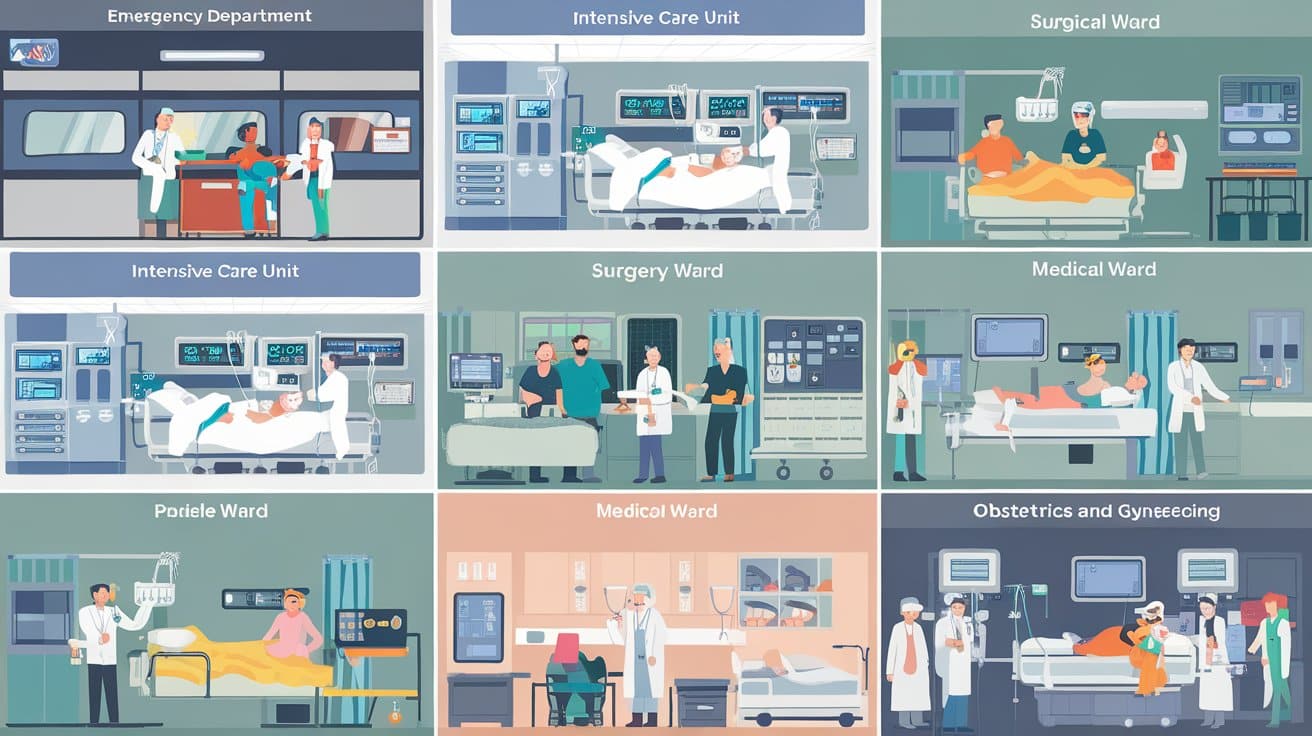
Hospitals are essential institutions designed to provide comprehensive healthcare services.
Hospitals are divided into various units to ensure efficient and specialized patient care, each with a specific focus.
These units work in tandem to provide patients with tailored treatments depending on their health needs.
In this guide, we will explore the different units in a hospital and how each one plays a crucial role in delivering effective healthcare.
Different Rooms in a Hospital Explained
1. Emergency Department (ED)
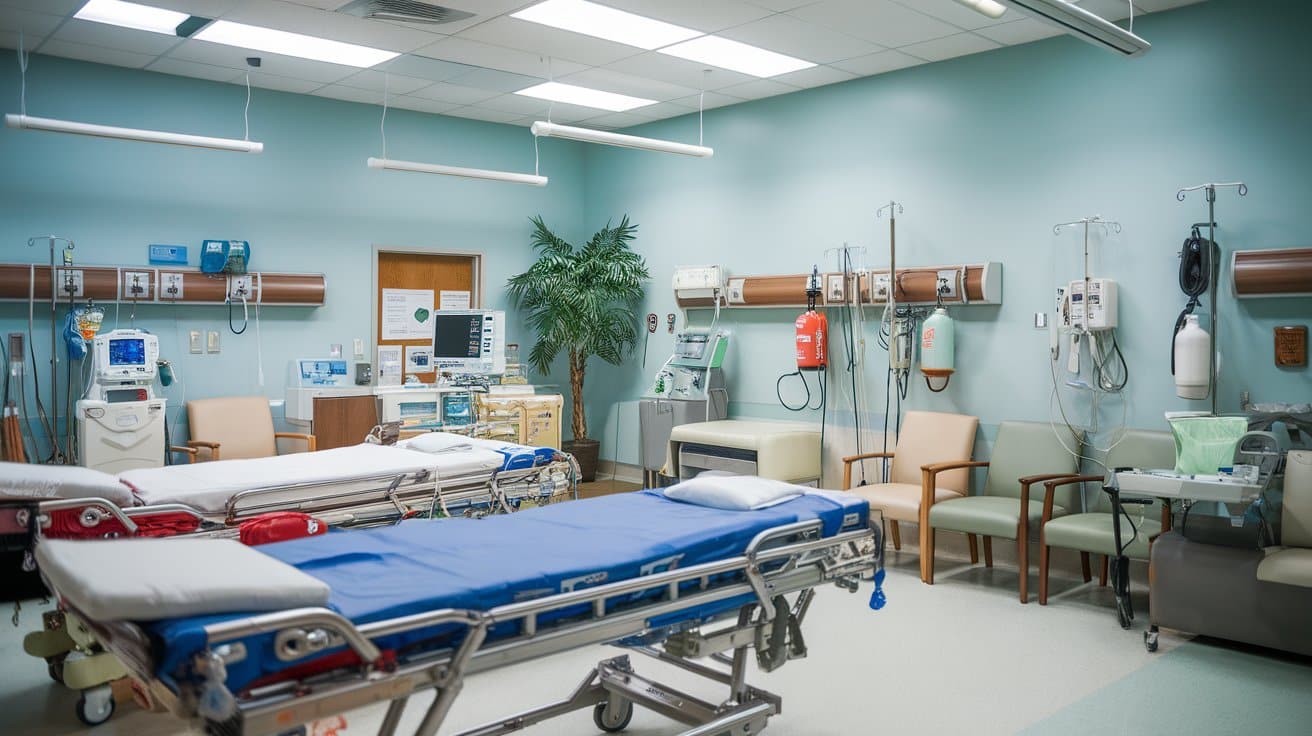
The Emergency Department (ED) is one of the most critical units in any hospital.
It handles urgent, life-threatening situations and provides immediate care for patients experiencing severe injuries or sudden illnesses.
Triage is a key process in the ED, where patients are assessed and prioritized based on the severity of their conditions.
This ensures that those in the most critical condition receive treatment first, followed by patients with less urgent needs.
2. Intensive Care Unit (ICU)
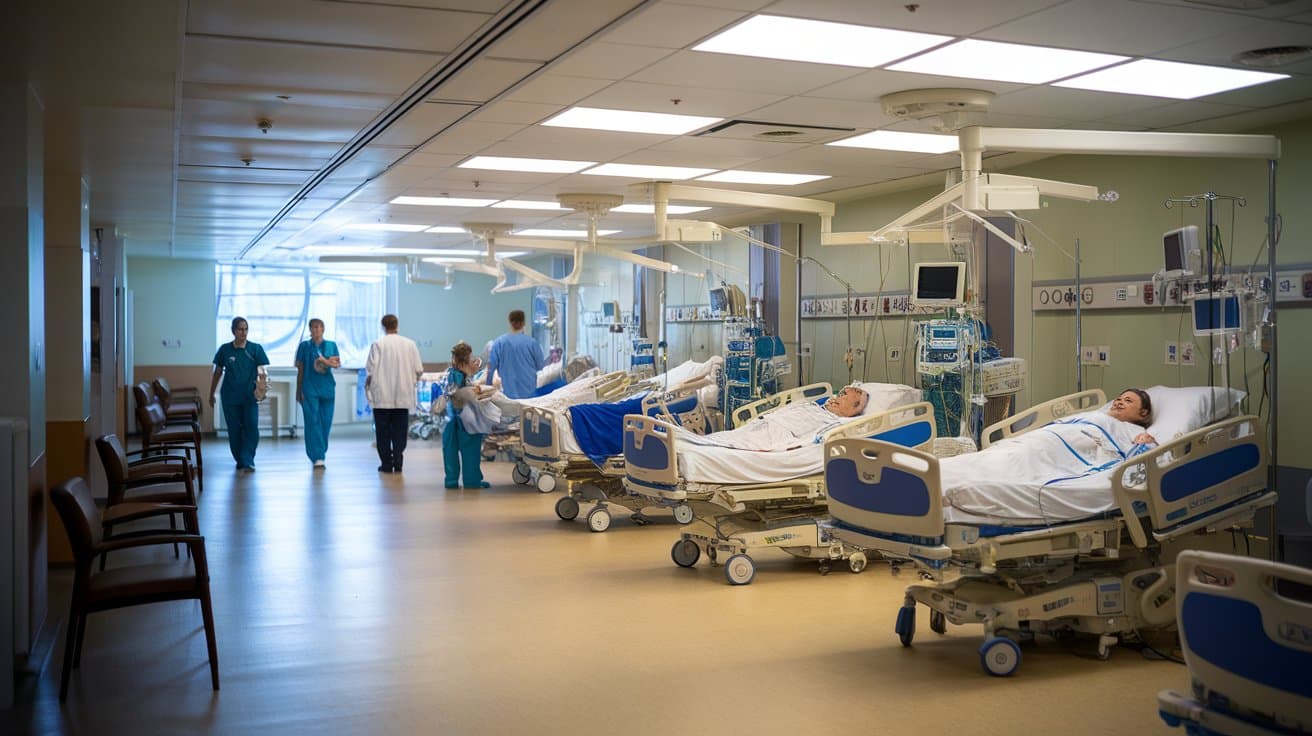
The Intensive Care Unit (ICU) is designed for patients with severe or life-threatening illnesses and injuries that require constant monitoring.
Equipped with specialized machines such as ventilators and heart monitors, the ICU offers around-the-clock care.
Patients in the ICU typically have serious medical conditions that require close observation and advanced medical treatments to stabilize their health.
3. Surgical Unit (Operating Room or OR)

The Surgical Unit, or Operating Room (OR), is where operations are performed.
This unit is equipped with advanced surgical equipment and staffed by a team of surgeons, anesthesiologists, and nurses.
Surgeries in the OR can range from routine procedures, such as appendectomies, to complex surgeries like heart bypasses.
Pre- and post-operative care is crucial in this unit to ensure successful recovery and manage any complications.
4. Pediatric Unit

The Pediatric Unit specializes in the care of infants, children, and adolescents.
This unit focuses on the unique medical needs of younger patients, offering specialized treatments and care tailored to their age group.
Pediatric doctors and nurses are trained to handle conditions specific to children, ensuring that they receive appropriate care in a comforting environment.
5. Maternity and Labor Unit
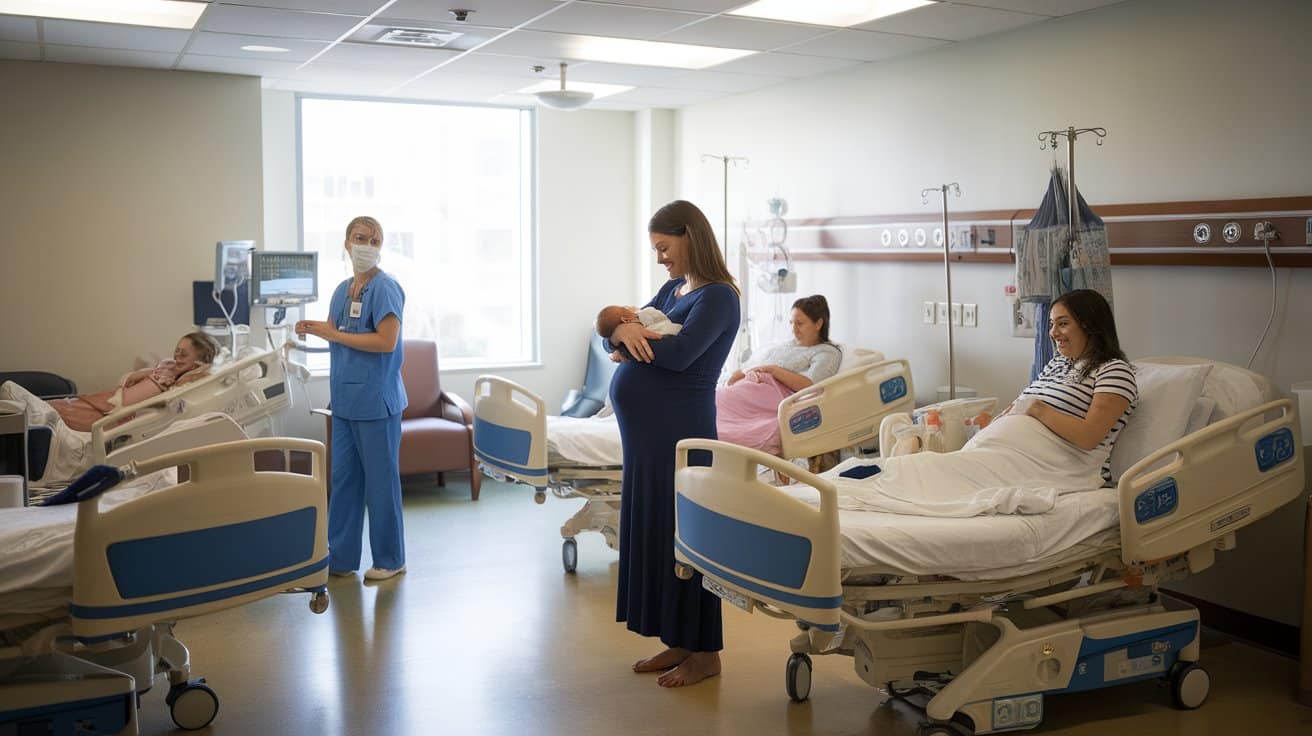
The Maternity and Labor Unit is where prenatal care and childbirth occur.
This unit features labor and delivery rooms, where expectant mothers are cared for during childbirth.
In addition, the neonatal care section provides specialized care for newborns, particularly those born prematurely or with health issues.
The focus is on ensuring a safe delivery for both mother and baby.
6. Cardiology Unit
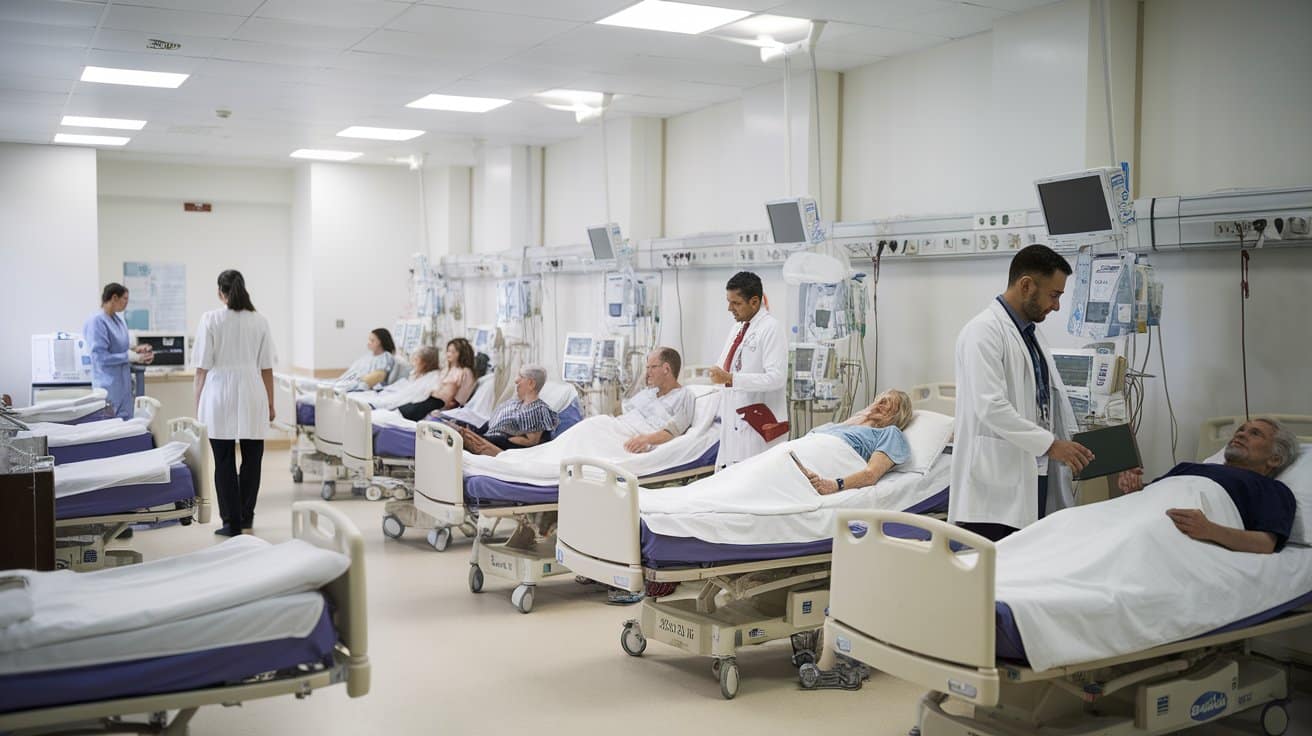
The Cardiology Unit is dedicated to treating patients with heart-related conditions.
This unit is equipped to handle a wide range of cardiovascular issues, from monitoring heart function to performing heart surgeries.
Procedures such as catheterization, echocardiograms, and heart monitoring are common, along with the care of patients recovering from heart surgery or heart attacks.
7. Oncology Unit
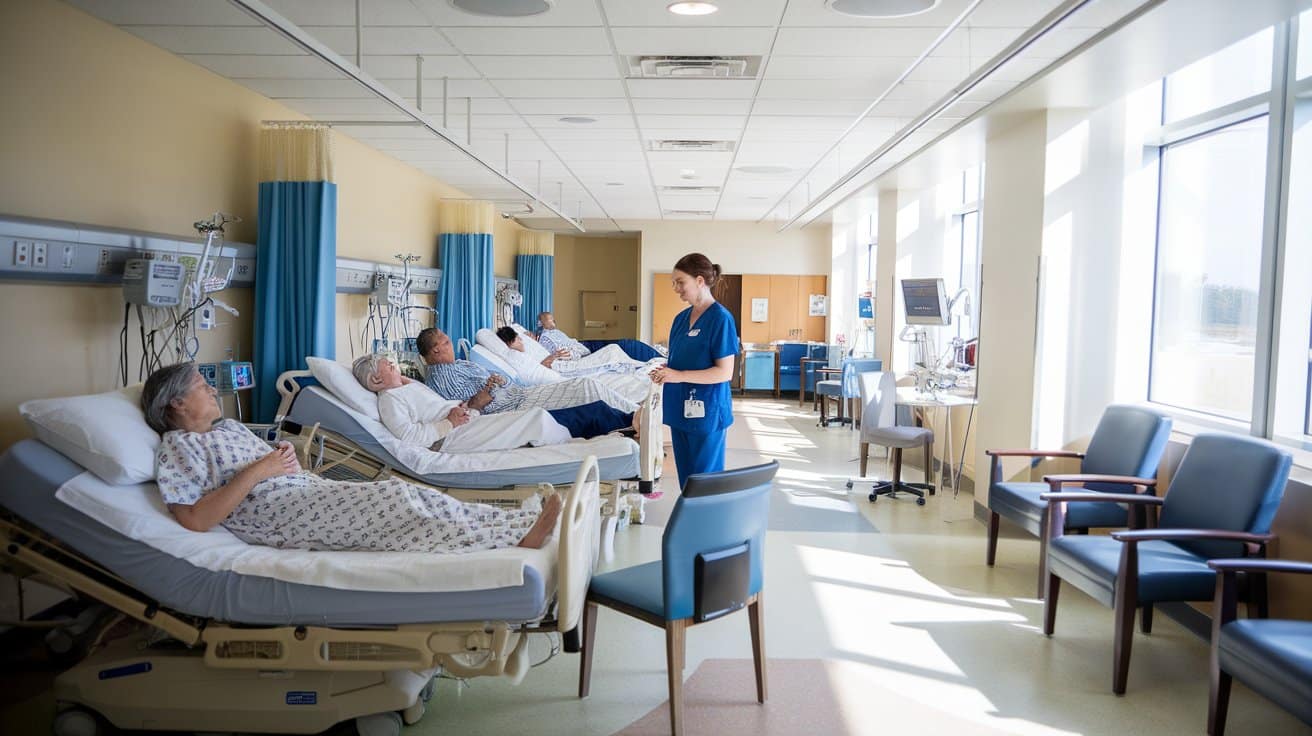
The Oncology Unit specializes in the treatment of cancer.
Patients in this unit may receive chemotherapy, radiation therapy, or other cancer treatments.
Oncologists and specialized nurses work together to provide comprehensive care, including pain management and post-treatment support.
The goal of the oncology unit is to manage cancer effectively and improve the patient’s quality of life.
8. Orthopedic Unit
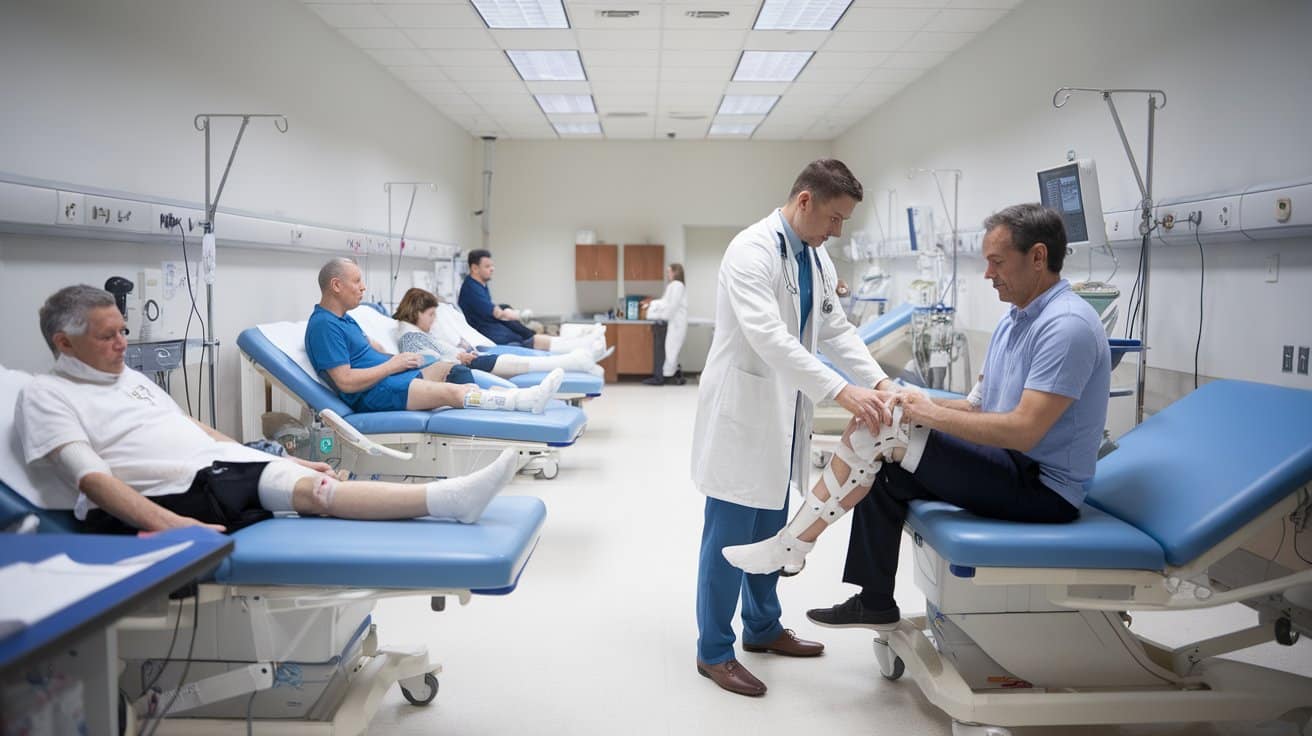
The Orthopedic Unit focuses on the treatment of musculoskeletal issues, including broken bones, joint problems, and injuries.
This unit handles surgeries like joint replacements and fracture repairs, as well as rehabilitation therapies to help patients regain mobility.
Orthopedic doctors and physical therapists work closely to ensure successful recovery from surgeries and injuries.
9. Neurology Unit
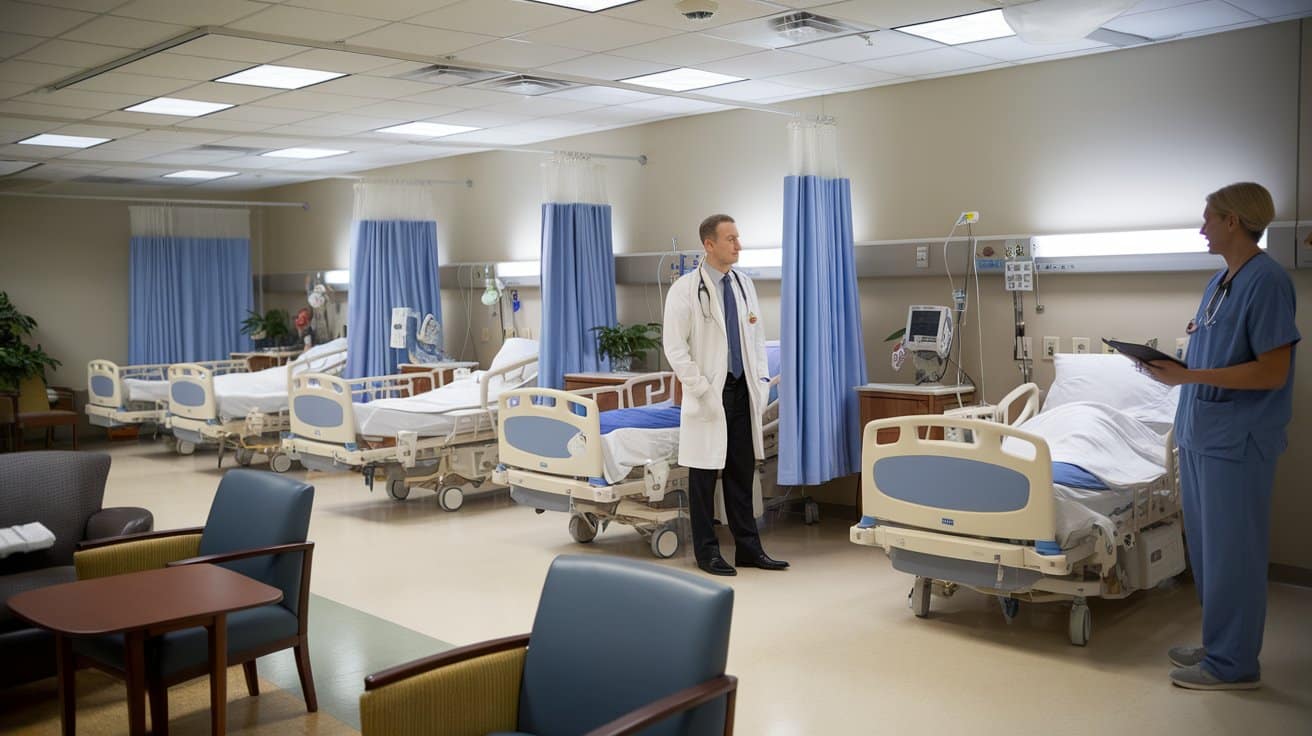
The Neurology Unit deals with disorders related to the brain, spine, and nervous system.
This unit treats conditions such as strokes, seizures, and neurological disorders.
Neurologists and neurosurgeons work together to provide treatments ranging from medication to brain surgery.
The goal is to restore neurological function and improve the quality of life for patients with nerve-related conditions.
10. Rehabilitation Unit

The Rehabilitation Unit helps patients recover from surgeries, injuries, or illnesses through physical therapy, occupational therapy, and other recovery techniques.
This unit focuses on restoring mobility, strength, and independence.
Patients recovering from strokes, surgeries, or traumatic injuries often work with therapists to regain their ability to perform daily activities.
11. Psychiatric Unit
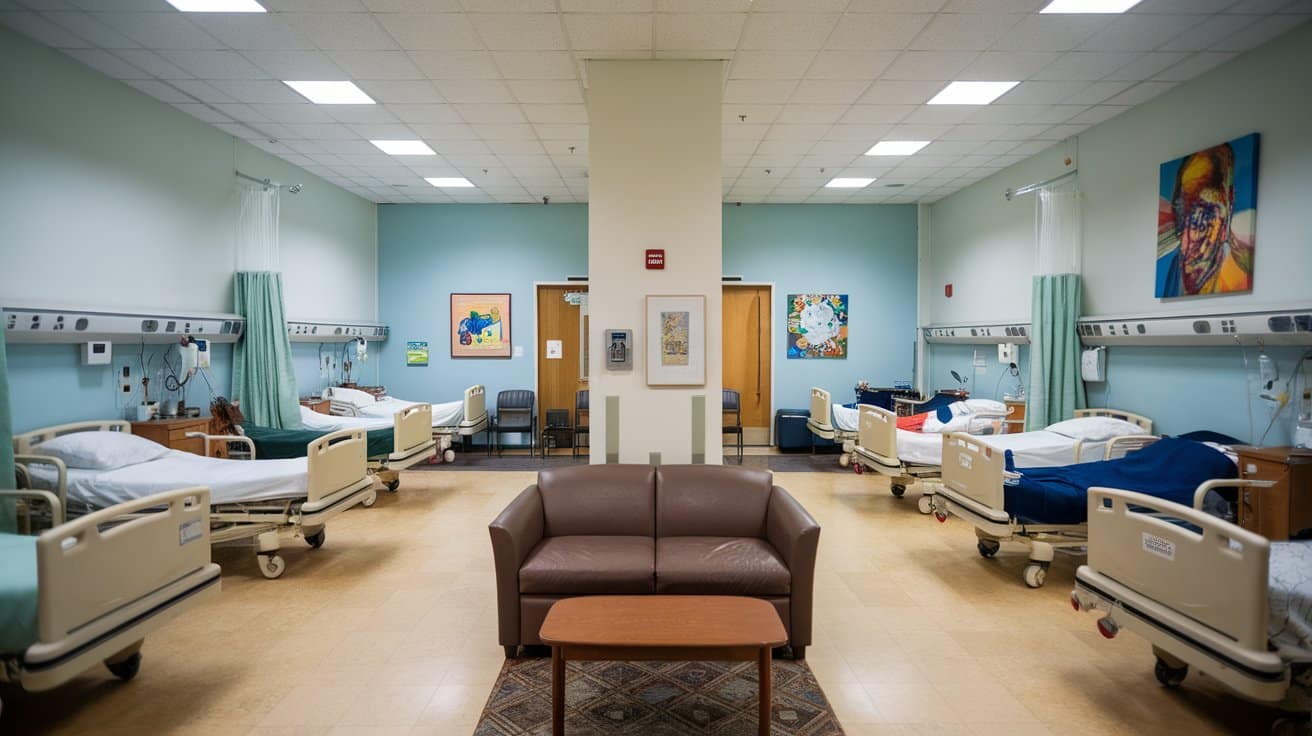
The Psychiatric Unit provides specialized care for individuals dealing with mental health issues, including depression, anxiety, and other psychiatric disorders.
This unit offers both inpatient and outpatient services, depending on the severity of the condition.
Treatment plans may include therapy, medication, and support programs designed to help patients manage their mental health and improve their quality of life.
12. Radiology Unit
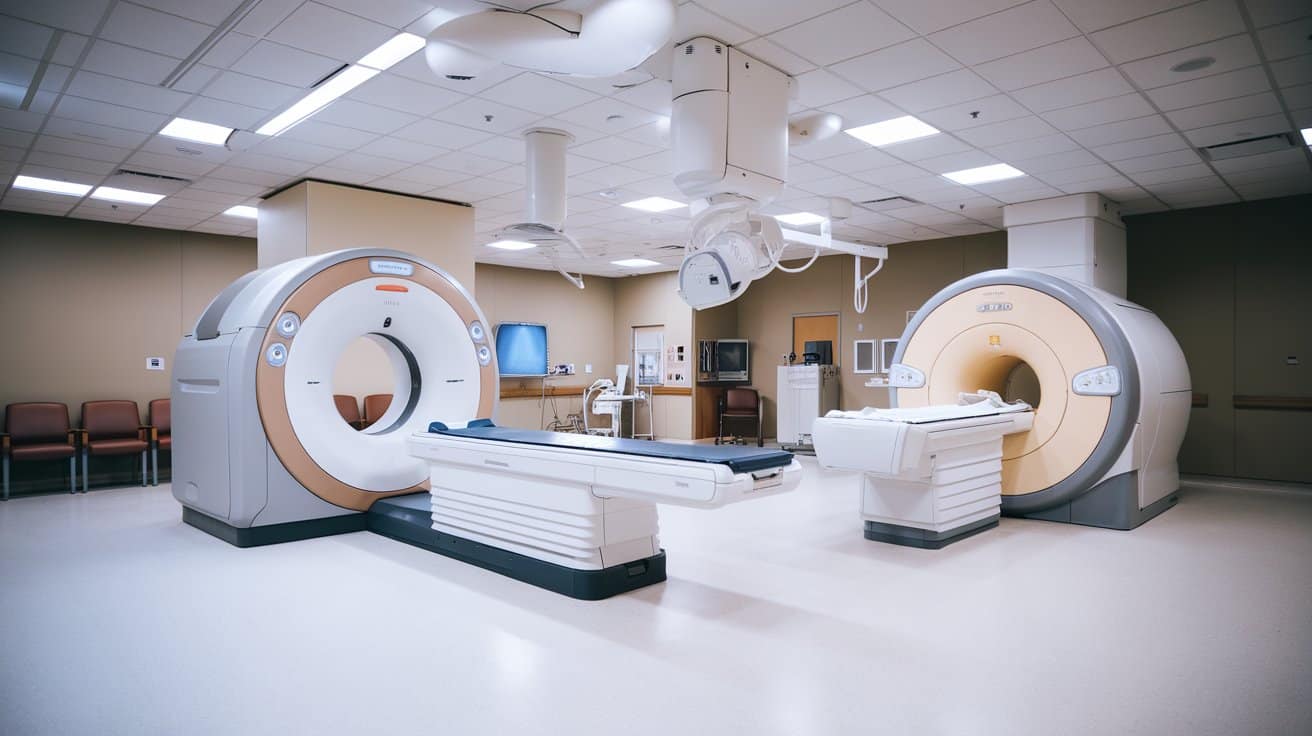
The Radiology Unit is responsible for conducting imaging tests to diagnose various conditions.
This unit uses advanced technologies such as X-rays, MRIs, and CT scans to help doctors identify internal issues without invasive procedures.
Radiologists interpret these images and collaborate with other departments to determine the appropriate course of treatment for patients.
Conclusion
Hospitals are divided into specialized units that work together to provide comprehensive healthcare.
From emergency treatment in the ED to long-term care in the Oncology or Psychiatric units, each department plays a vital role in ensuring that patients receive the best possible care.
Understanding the function of these units can help patients navigate the healthcare system and better appreciate the complexity of hospital care.
Beyond the specialized units, it’s also critical for hospitals to maintain a robust supply of essential protective equipment to ensure the safety of both patients and staff. To meet this ongoing need efficiently, many healthcare facilities choose to procure N95 face masks in bulk, ensuring they always have an adequate supply on hand to protect against airborne pathogens, especially during periods of heightened health concerns.

